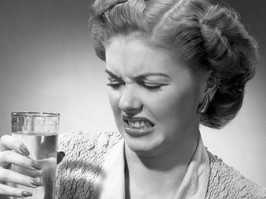“you’ll get that chin hair, moustache hairs, hair around the nipples and on the lower abdomen,” jacobson says. “what’s most important to know about these changes is that they’re usually not dangerous. they’re part of a normal transition for your body.”
and as your hormone levels begin to stabilize over time, many symptoms will decrease and even disappear. she does note that if hair growth is rapid and heavy, it’s important to get it checked out because there could be something else going on, like increased steroid levels or a rare testosterone-producing tumour.
nothing wrong with a little tweezing
she says some women are alarmed by unwanted hair, so understanding the physiological changes helps them to manage the symptoms. once you have the hair growth, it’s not going to go away but there are options to remove it and slow the growth.
“for those pesky hairs on the chin or upper lip, there’s nothing wrong with just tweezing,” she recommends.
other forms of epilation work, too, like waxing and threading, and more permanent removal treatments like laser and electrolysis work to destroy the growth cells in hair follicles.
for unwanted facial hair, there’s also the prescription cream eflornithine that is applied to the skin to slow down hair growth. “it doesn’t permanently remove hair and it’s not a cure — it only works as long as you’re using it,” jacobson says.
 4 minute read
4 minute read








